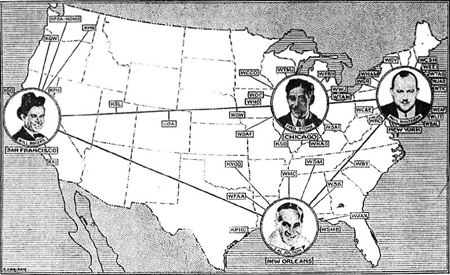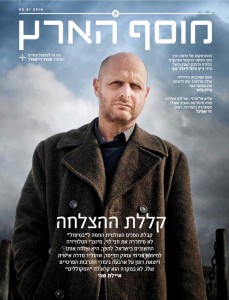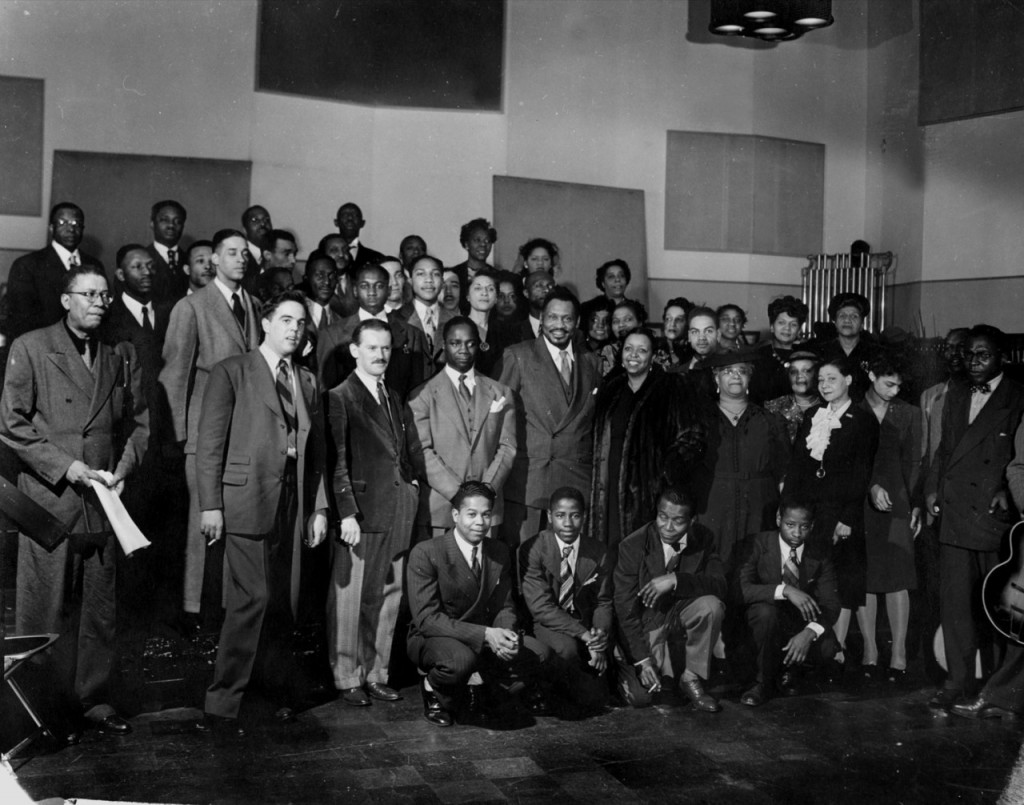
Chris Moreh explains how the need to take up the challenge posed by rapid economic growth in Asia has aided the resurrection of national imaginaries of an Asian origin in the Central European country of Hungary.
Read more »
Tags: András Zsolt Bíró, Asia, cultural studies, Discourse, Eurasian, György Matolcsy, Hungary, IJCS, International Journal of Cultural Studies, Jobbik, Kurultáj, National Identity, Turan, Viktor Orbán
Posted in Columns, International Journal of Cultural Studies | Comments Off on The Discursive Asianization of Hungary

Brian DeShazor discusses the origins of Pacifica Radio and the archival radio series, "From the Vault." The Pacifica Radio Archives was established in 1971 to house a collection of over 60,000 reel-to-reel tapes, representing the last half of the 20th century as experienced and reported on by Pacifica Radio.
Read more »
Tags: #RPTF, archives, From the Vault, KPFA, KPFK, Lewis Hill, media history, National Public Radio, Pacifica Foundation, Pacifica Radio, Pacifica Radio Archives, public radio, radio, Radio Preservation Task Force, social justice
Posted in Columns, Radio Preservation Task Force | 1 Comment »

Katariina Kyrölä on somatic archives, memories of porn use in Finland, and the notion of the archive in the context of queer theory, porn studies, and media studies.
Read more »
Tags: Finland, IJCS, International Journal of Cultural Studies, memory, pornography, somatic archives
Posted in Columns, International Journal of Cultural Studies | Comments Off on “A Torn and Wrinkled Page On a Dirt Road”: Memories of Pornography as Somatic Archives

Neil Verma explores the different uses of collective listening in public events and in the classroom, reflecting on a recent experience teaching podcast studies to undergraduates.
Read more »
Tags: #WOTW75, Cast Party, collective listening, Kate Lacey, Love + Radio, media studies, Michel Chion, Nancy Updike, pedagogy, podagogy, podcasting, podcasts, radio ballads, Radio Love Fest, radio studies, Radiolab, Serial, The Ballad of John Axon, The Truth, Third Coast International Audio Festival, This American Life
Posted in Columns, On Radio | 1 Comment »

Bruce Lenthall discusses the challenges and opportunities of teaching radio history to a generation of students for whom even the metaphors we often use to think about radio's early history no longer resonate.
Read more »
Tags: #RPTF, Amos 'n' Andy, broadcasting, media history, media industries, media studies, network system, Othering, pedagogy, Radio Preservation Task Force, radio studies, War of the Worlds
Posted in Columns, Radio Preservation Task Force | 1 Comment »

The Tudors and Wolf Hall can actually tell us a great deal about how the early modern appears in contemporary popular culture, as well as how we engage with the historical past.
Read more »
Tags: BBC, Golden Age of Television, history, Jonathan Rhys-Meyers, Masterpiece Theatre, PBS, Showtime, television, the tudors, wolf hall
Posted in Perspectives, TV | Comments Off on Losing Our Heads for the Tudors: The Unquiet Pleasures of Quixotic History in The Tudors and Wolf Hall

Rayna Denison and Hiroko Furukawa analyze how Japan’s fiction media producers have responded to the Great East Japan Earthquake of 2011 with a discourse of trauma, healing, and recovery in media ranging from manga to anime and film.
Read more »
Tags: 3.11 Disaster, anime, film, From Up on Poppy Hill, Fukushima, Great East Japan Earthquake, Himizu, IJCS, International Journal of Cultural Studies, Japan, manga, Reunion, Ryoichi Kimizuka, Sion Sono, Stories from 311, Studio Ghibli, Weekly Shōnen Jump
Posted in Columns, International Journal of Cultural Studies | Comments Off on Ongoing 3.11 Disaster and Recovery and Japan’s Mediascape

The Mad Max series continues to be a cult classic, in part because it re-appropriates the western and the road movie and redeploys them to create an environmentally catastrophic vision of a future that we could create.
Read more »
Tags: American frontier, Aunty Emity, Australia, Beyond Thunderdome, feminism, Fury Road, George Miller, Imperator Furiosa, Mad Max, On the Road, race, road movies, science fiction, spaghetti westerns, The Man with No Name, The Road Warrior, The Wild One
Posted in Film, Perspectives | 1 Comment »

Leora Hadas tracks creative frictions as Israeli TV dramatists see their work exported, adapted and as The Affair’s Hagai Levi puts it, taking a permanent detour from work that “started out as art.”
Read more »
Tags: adaptation, authorship, Dig, Fauda, formats, Hagai Levi, HBO, Homeland, In Treatment, Israel, Keshet Broadcasting, Rising Star, Showrunner, Showtime, television, The Affair, transnational, transnational media
Posted in Columns, From Nottingham and Beyond | Comments Off on Making an Exit, Coming Home: Israeli Television Creators in a Global-Aiming Industry

D. Elizabeth Cohen discusses how teaching with media from YouTube can be a force for literacy and internationalization in South Korea.
Read more »
Tags: bilingualism, creative cluster, creative economy, creative industries, cultural studies, Digital Media City, DMC, globalization, ICT, IJCS, information and communication technology, International Journal of Cultural Studies, language, South Korea, urban geography, YouTube
Posted in Columns, International Journal of Cultural Studies | Comments Off on Thoughts on English Literacy and Popular Culture in South Korea

The country radio controversy known as "#SaladGate" is a classic case of disruption caused by digital and social media and greater media literacy.
Read more »
Tags: #SaladGate, Country Aircheck Weekly, Country Music, gender, Keith Hill, Martina McBride, media industries, media literacy, Miranda Lambert, popular music, radio, radio programming, Radio Stuff Podcast, sexism, social media, Twitter
Posted in Columns, On Radio | 2 Comments »

This spring, game designers of Rust courted controversy by assigning players unchangeable, racialized avatars. Adrienne Shaw unpacks how game design helped produce some of that player outrage.
Read more »
Tags: audience studies, avatars, Cobra Club, colorblindness, Facepunch Studios, media aesthetics, MMO, racism, Representation, Runaways, Rust, social justice, video games
Posted in Current Events, Games | Comments Off on Unpacking Rust, Race, and Player Reactions to Change

As part of a forthcoming history of the radio feature Michele Hilmes shares her discovery of the supposedly lost Langston Hughes radio play, "The Man Who Went to War."
Read more »
Tags: Alan Lomax, ballad opera, BBC, D.G. Bridson, Langston Hughes, Library of Congress, media history, media studies, Michel Foucault, Network Nations, Norman Corwin, Paul Robeson, radio, Radio Feature, Radio Preservation Task Force, soundwork, The Man Who Went to War, Transatlantic Call, World War II
Posted in Columns, Honoring Hilmes | Comments Off on Missing from History: Langston Hughes’ The Man Who Went To War

Against orthodox thought that cult films earn their status through lengthy reception trajectories, Mad Max: Fury Road is always already a cult film.
Read more »
Tags: cult cinema, Mad Max
Posted in Perspectives | Comments Off on Road to Nowhere: Mad Max: Fury Road and the Unstoppable Safe Transgressions of Cult Cinema

Looking beyond the content of Michele Hilmes’s work to its structure and form, Shawn VanCour discusses the larger goals and techniques of Hilmesian historiography.
Read more »
Tags: consumer culture, counterpublics, Discourse, feminism, historical closeup, historiography, ideology, Jacques Derrida, media history, Michel Foucault, Michele Hilmes, public sphere, radio, radio voices, Roland Marchand, Siegfried Kracauer, soap opera, spectrology
Posted in Columns, Honoring Hilmes | Comments Off on Ghost Stories and Dirty Optics: Notes on the Hilmesian Closeup















